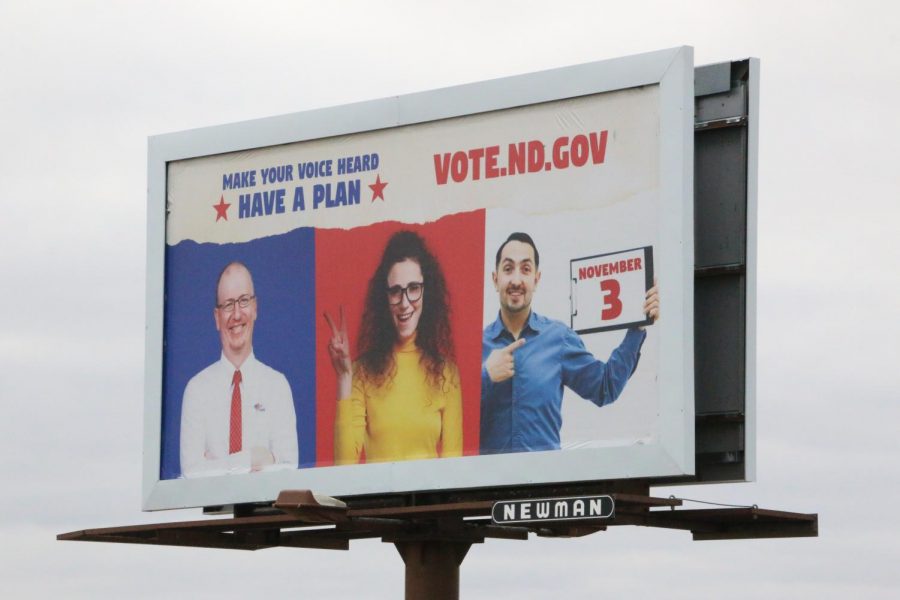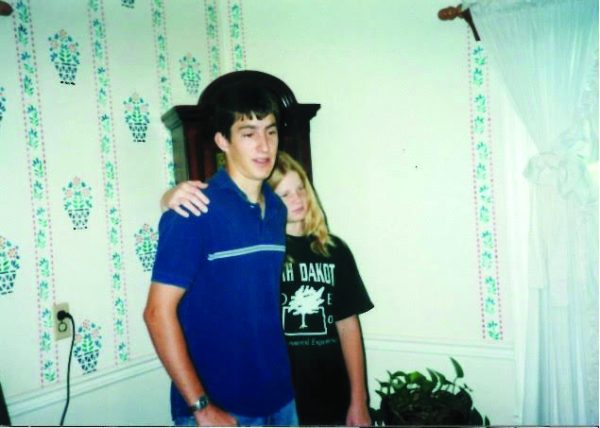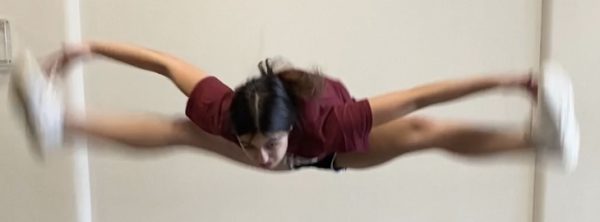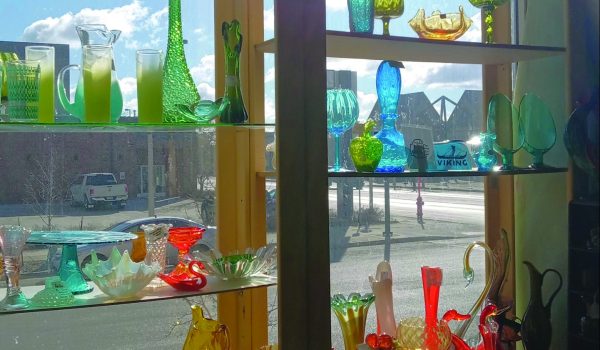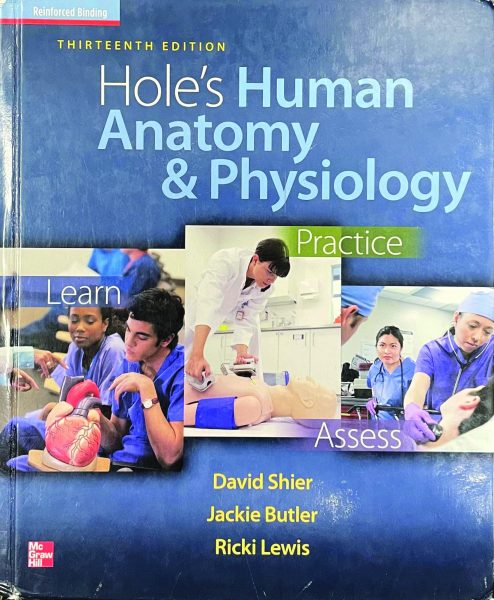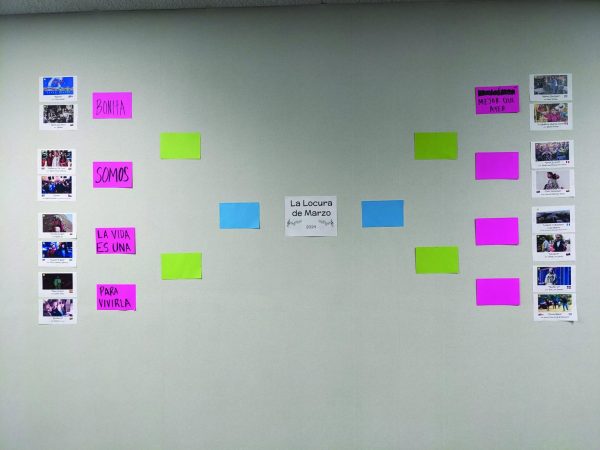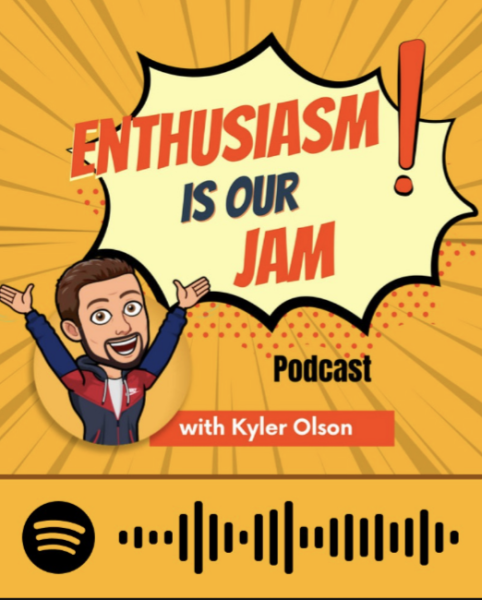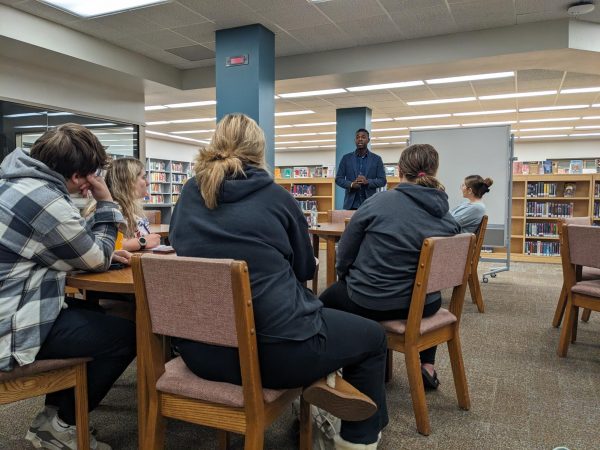A voice to be heard
A small population of Bismarck High School seniors will be eligible to vote in this year’s election.
Polling – at home or at the booth. A billboard in southern Bismarck spreads awareness of the different ways this year in which eligible ND residents will be able to cast their votes for candidates running for national, state and local positions. Carli Evanson, a BHS senior, is one individual among 18-year-olds across the nation who will be choosing how – and whether – they are going to vote in November’s election. “For the upcoming election, I feel there are many options on how to actually vote,” Evanson said. “I will be going to vote at an in-person facility to fill out my ballot. It is the way I feel most comfortable doing because voting by mail seems too confusing.”
A few students in the BHS class of 2021 will be 18-years-old before the federal election on November 3. As legal adults, they will have the opportunity to cast their votes on who they believe should be the country’s next president, in addition to indicating their preferred candidates for certain state and local positions.
Voting is a critical component of a democracy that fairly represents all of its people. Even though they are only recently designated as adults, this includes young people such as voting-eligible high school seniors.
“I am excited to be able to have a voice and be a part of the country’s decisions,” BHS senior Brooke Burgard said.
These seniors, along with other eligible young adults across the country, will comprise a new group of voters with a larger stake in social media than any other generation before them. Memes and life posts now share spots in social media feeds with political opinions and election news, whether from official or unofficial sources.
“A lot of [my] information has come from social media and the news,” Burgard said. “The recent debates have also provided some information, but I wish they would have been more civil and answered the questions head-on.”
Sometimes, information found online – or even spoken during debates – can be biased or flat-out false. An educated vote is better than an uneducated vote, which is why some eligible adults may choose to forgo voting this year. Due to false news or a lack of time to invest in researching candidates, among other reasons, they may not feel as if they are sufficiently knowledgeable to make the decision that most aligns with their values and beliefs.
“I feel like I have been concentrating on my senior year more than anything, colleges, scholarships, FAFSA, homework and my grades are very important to me and that is where most of my concentration has been going,” BHS senior Brianna Albrecht said. “Due to not having a full understanding or a proper education with the candidates and election this year, I decided that this year I, as of now, will not be voting.”
Albrecht and others who choose not to vote in this election do not necessarily have to wait four years for another opportunity to express their voice through the ballot box. In specific years, they will also have the opportunity to vote for state and local officials when their terms expire, as well as certain measures that impact their communities.
“I think it is more important [to vote in state and local elections] because states can have different laws than federal laws, and these state laws and decisions will more personally affect you and your community,” Burgard said.
According to the US Census Bureau, eligible voters ages 18 to 24 historically have the worst turnout. The causes of this discrepancy are debated, with some claiming that young voters simply care less about the results of elections. Others suggest that members of this age group are more likely to believe that their votes will not change anything.
“I feel as if every vote matters and is important,” Albrecht said. “Voting has an important impact on the election, and every [vote] counts.”
However, the most publicized portion of the ballot, the presidential candidates and their corresponding bubbles, functions on a state-wide majority system. This means that the candidate, who is usually associated with one of the two major parties, that receives a majority of a state’s popular vote receives all of the state’s electoral votes, which in North Dakota equates to three. A majority is defined as anything above 50 percent, so in theory, the voices of nearly half of a state’s population could be practically unheard.
“Honestly, in the state of North Dakota, I do not think my vote really matters. We are a Republican state, and nine times out of ten, the Republican candidate will win over our state,” BHS senior Carli Evanson said.
Due partially to the visible effects of partisanship in the United States, identifying with a political party at all is increasingly unappealing for young voters.
“I do not identify with a political party. I feel identifying with a party makes it unfair for the candidates,” Evanson said. “If I identified as Democratic, I would only vote for the Democratic candidate, and vice versa. By not being a part of a party, you are voting based on the person, not their party.”
Generation Z’s experiences and beliefs will undoubtedly influence the future of American politics, but American politics will also undoubtedly influence Generation Z’s future. Voting allows members of this generation to take a more active role in this future.
“When you are given the ability to vote, you feel like your choice or opinion matters in this situation, and you are given the privilege to feel like someone who is old enough to make a decision themselves,” Albrecht said. “You are treated like an adult.”
A greater voter turnout results in a more representative democracy. Therefore, it is critical that young eligible voters cast their votes and conduct the research necessary to understand their ballot, even though they have not been proportionally represented in the past.
“We make up a large amount of the vote if everyone eligible would [vote], and that is so important because a lot of decisions will affect us in the future,” Burgard said. “This is also the only time that our voices are taken into consideration.”
Your donation will support the student journalists of Bismarck High School. Your contribution will allow us to purchase equipment and cover our annual website hosting costs.
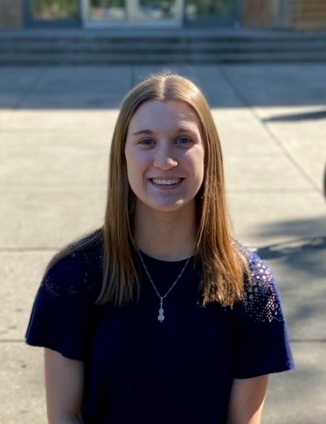
When she is not living and breathing schoolwork, Mackenzie enjoys playing the cello and working at North Dakota's only science museum. Her seemingly unrelated...

